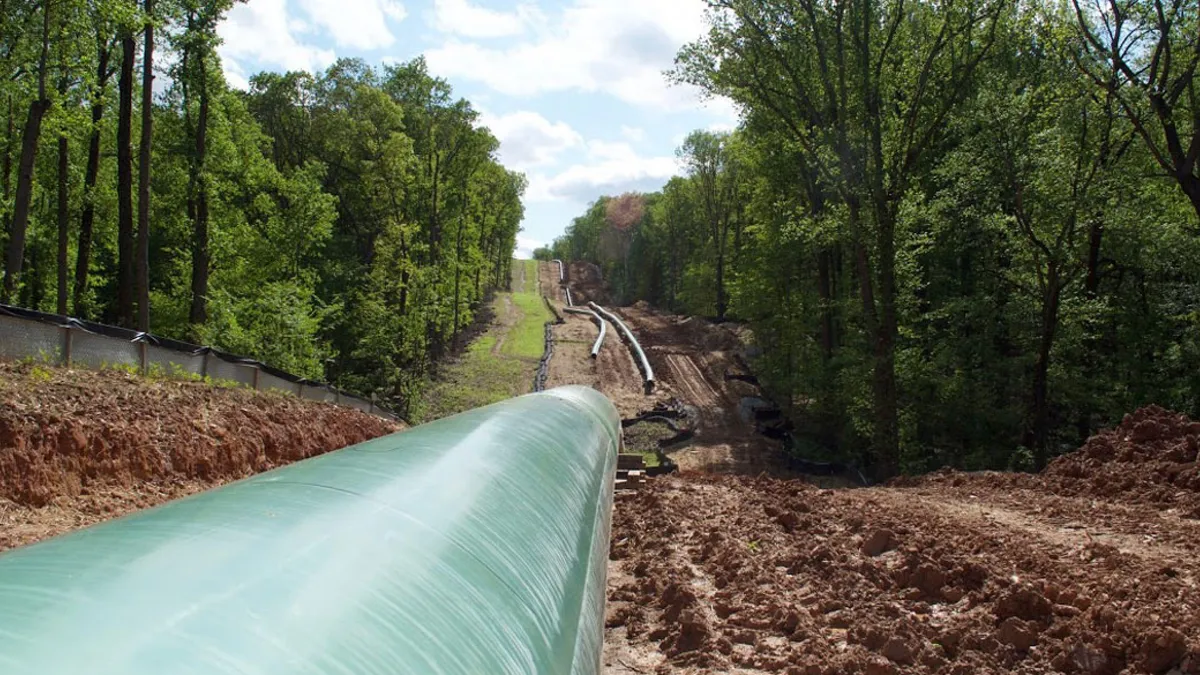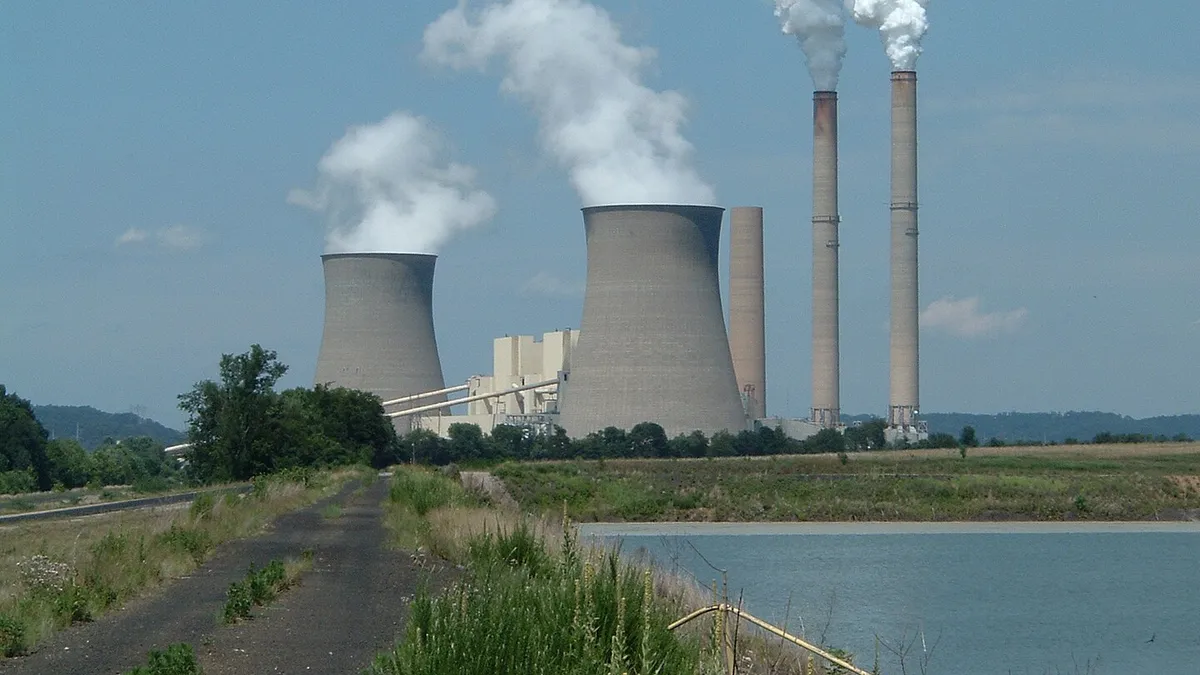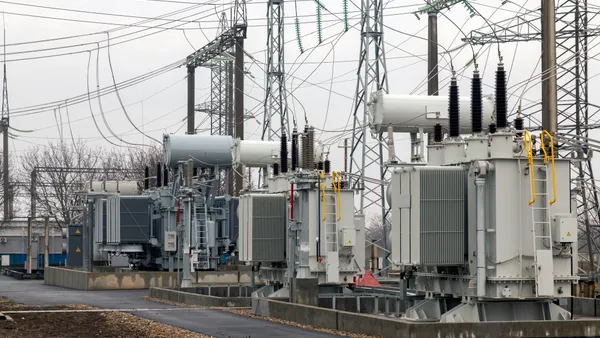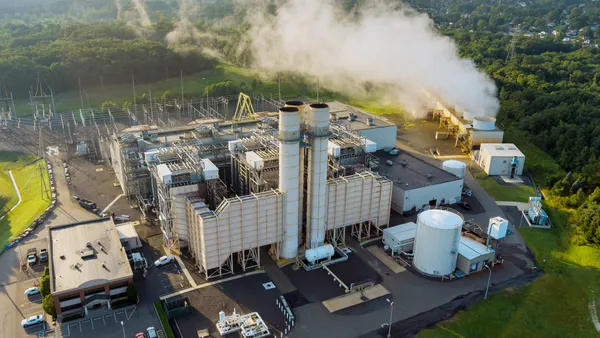Dive Brief:
- Opponents of the $6 billion, 600-mile Atlantic Coast Pipeline (ACP) have filed a broad challenge attacking the underlying need for the additional gas it would bring.
- The embattled project planned by Dominion Energy, Duke Energy and Southern Co. is already facing a potential re-routing. The Federal Energy Regulatory Commission (FERC) halted construction following a federal appeals court decision this month to reject construction certificates that had been approved, but declined to reconsider its certificate approval.
- While federal regulators said the pipeline route may need to be altered, the Southern Environmental Law Center (SELC) and Appalachian Mountain Advocates (AMA) filed a broad lawsuit in the U.S. Court of Appeals for the Fourth Circuit, which they believe could sink the project.
Dive Insight:
The new lawsuit, filed on behalf of a baker's dozen of conservation groups, targets what SELC and AMA called "Dominion's inflated claims that the pipeline is needed in Virginia and North Carolina."
Whether the pipeline is necessary has become a key point of contention, as the battle between developers and opponents has so far been over specific permits and environmental findings. In her October dissent to the order approving the Atlantic Coast project, Commissioner Cheryl LaFleur said both ACP and the Mountain Valley Pipeline, which FERC approved the same day, "appear to be receiving gas from the same location, and both deliver gas that can reach some common destination markets."
According to SELC, gas-fired power plants in Virginia and North Carolina are already connected to the existing pipeline system and "will have few direct connections to the ACP," undercutting developers' arguments the new supply is necessary for electric generation. And they say the gas delivered by the Atlantic Coast pipeline, which will be produced through hydraulic fracturing, "will be more expensive than the gas that is currently available in Virginia through existing infrastructure."
"From the day this dirty, dangerous pipeline was proposed, communities, experts and the builders themselves have known that it had nothing to do with need and everything to do with greed," Joan Walker, senior representative for the Sierra Club's Beyond Dirty Fuels Campaign, said in a statement. She added that "clean, renewable energy is affordable and abundant" in Virginia and North Carolina.














